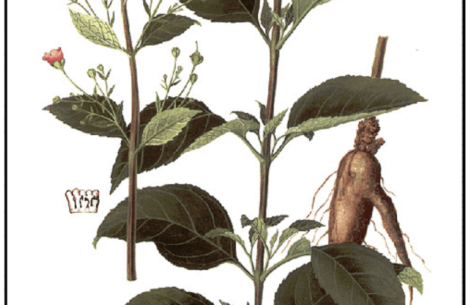Herb Overview
Pharmaceutical name: Rehmannia glutinosa
Chinese name: Shu Di Huang
Latin Name: Radix Rehmanniae Praeparata
English Name: Rehmannia
Family: Scrophulariaceae
Traditionally, Rehmannia is regarded as a “top grade” herb in China and has very high medicinal value. Rehmannia refers to the root of Rehmannia glutinosa, a herb of the Scrophulariaceae family. There are three types of Rehmannia glutinosa used for medicinial purposes: fresh remannia root (Xian Dihuang) which removes heat from the blood to prevent bleeding; Rehmannia dried rhizome (Sheng Dihuang) which removes pathogenic heat from the blood and promotes production of body fluids; and prepared rehmannia root (Shu Dihuang) which nourishes Yin and supplements the blood and benefiting the marrow.
Benefits
Pharmacological studies have shown that Rehmannia glutinosa benefits us in several aspects. First of all, it posses anti-tumor activity. Studies have demonstrated that Rehmannia glutinosa polysaccharide significantly inhibited tumor growth and enchanced T lymphocyte proliferation in vivo in tumor bearing mice. In addtion, Rehmannia has properties of antibacteria, anti-inflammation, antihyperglycermia, immune regulation, antihypetension and brain and liver protection.
Rehmannia glutinosa can significantly lower blood sugar in experimental studies by increasing insulin excretion and augmenting tissue sensitivity to insulin in diabetic rats and mice.
Treatment of 23 cases of arthritis with a decoction of the Rehmannia glutinosa roots improved symptoms in most patients. Patients reported a decrease in joint pain, a reduction in swelling, and improvements in joint movement. In addition, a normalization of the erythrocyte sedimentation rate was observed.
A decoction of the roots of Rehmannia, corresponding to 30.0–50.0 g of roots, administered daily for 2 weeks to 62 patients with hypertension significantly reduced blood pressure, serum cholesterol and triglycerides, and improved cerebral blood flow and the electrocardiogram (EKG).
Exstracts from Rehmannia has the ability to regulate immune function by affecting immune related cells such as T and B lymphocytes, monocytes and dendritic cells.
Scientific study also showed methanol extract of the Rehmannia roots, 1.0 mg/ml, significantly inhibited (P < 0.05) the release of lactate dehydrogenase (LDH), glutamate-oxaloacetate transaminase (GOT) and glutamate-pyruvate transaminase (GPT) induced by carbon tetrachloride treatments in cultured rat hepatocytes. LDH, GOT and GTP are enzymes released when liver cell damaged. The undeline mechanism may be due to the anti free-radical activity of Rehmannia.
Contraindications
Rehmannia is contraindicated in chronic liver or gastrointestinal diseases and in patients with diarrhea. Owing to its potential anti-implantation effects, the use of Radix Rehmanniae during pregnancy is also contraindicated. In addtion, because of its antihypertensive effects, if you have hypertension and are taking medication to lower blood pressure, you have to losely monitor your blood pressure and adjust your antihypertension medication as needed.
References:
- WHO monographs on selected medicinal plants Volume 3, Radix Rehmanniae 283-295. Online: http://apps.who.int/medicinedocs/index/assoc/s14213e/s14213e.pdf
- Shah, B. N., Patel, P. B., Patel, A. B., Nayak, B. S., & Modi, D. C. (2010). REHMANNIA GLUTINOSA – A PHYTO-PHARMACOLOGICAL REVIEW. Pharmacologyonline, pp. 737-753.

